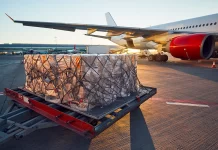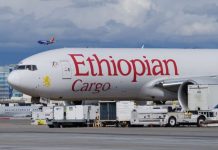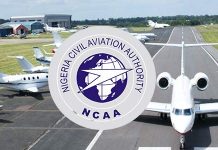Nigeria’s Minister of Aviation and Aerospace Development, Festus Keyamo, has emphasized the country’s potential to become the aviation hub of Africa due to its strategic geographical location. Speaking at the ongoing International Route Development Conference, Network Cargo 2024, held in Moscow, Russia, Keyamo highlighted Nigeria’s proximity to major continents, making it a prime candidate for becoming a central player in global aviation.
“Geographically, we are in the best position to be the real hub of Africa. If you look at the map, we are equidistant to South America, Europe, and Asia. We are about 6 to 7 hours from Doha, Dubai, and Brazil. With our population, we have the dream to develop a real hub for Africa,” Keyamo stated.
The Minister pointed out Nigeria’s untapped aviation potential, noting the substantial volume of international air traffic that originates from the country but is largely serviced by foreign airlines. “Most of the flights originating from Nigeria are not indigenous. Airlines from Ethiopia, Egypt, Morocco, and others feed on our traffic. They know that Nigerians travel all over the world,” he said.
To address this, Keyamo affirmed the Nigerian government’s commitment to bolstering the capacity of local airlines. He stressed that President Bola Ahmed Tinubu’s administration is focused on ensuring that Nigeria’s aviation sector reaps the benefits of its air traffic. “Instead of giving up our traffic and airspace to other people, we are focused on ramping up the capacity of our local airlines. That is a major priority of President Tinubu’s administration,” he added.
Keyamo also revealed plans to enhance Nigeria’s international aviation reach by establishing direct routes to South America, particularly Brazil. He highlighted the current irony that, to fly from Nigeria to Brazil, passengers often have to transit through countries like Ethiopia or Angola. “We are working to open up direct routes from Nigeria to South America, addressing this gap in our aviation connectivity,” Keyamo stated.
In addition, the Minister elaborated on Nigeria’s recent adoption of the Cape Town Convention’s practice directions, which regulate dry leasing, a common practice in the global aviation industry. The implementation of these regulations ensures that aircraft leased to Nigeria are protected under domestic law, providing assurance to international lessors and financiers.
“The practice direction we signed last week ensures that Nigerian courts protect lessors and financiers, giving them the confidence that their aircraft are safe in Nigeria. This move will foster stronger international partnerships while addressing our aviation needs,” he explained.
The Network Cargo 2024 conference, which focused on enhancing global partnerships and improving freight forwarding services, attracted transport ministers and industry leaders from around the world, all aiming to establish efficient and competitive cargo routes.
Keyamo underscored Nigeria’s commitment to achieving global standards in aviation by strengthening local airline capacity, securing international partnerships, and expanding direct routes to underserved regions. The government’s efforts aim to position Nigeria as a key player in the global aviation industry, enhancing the country’s connectivity and economic growth.













